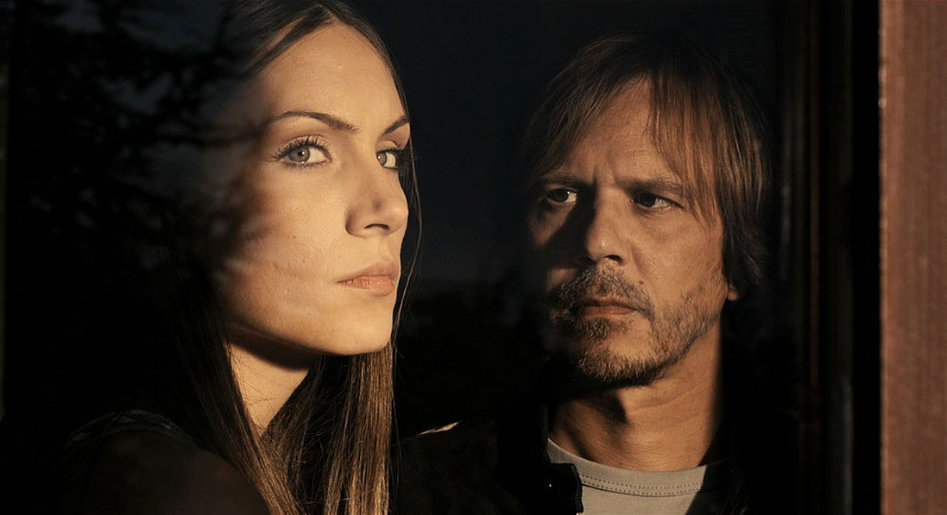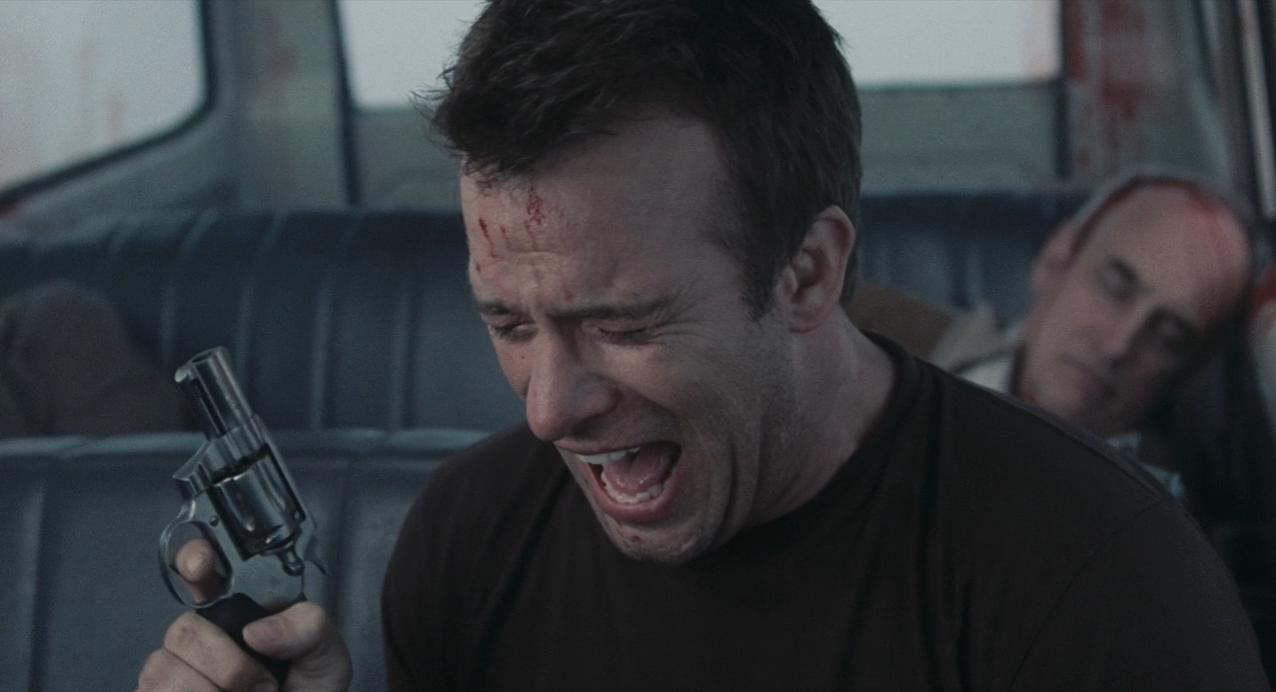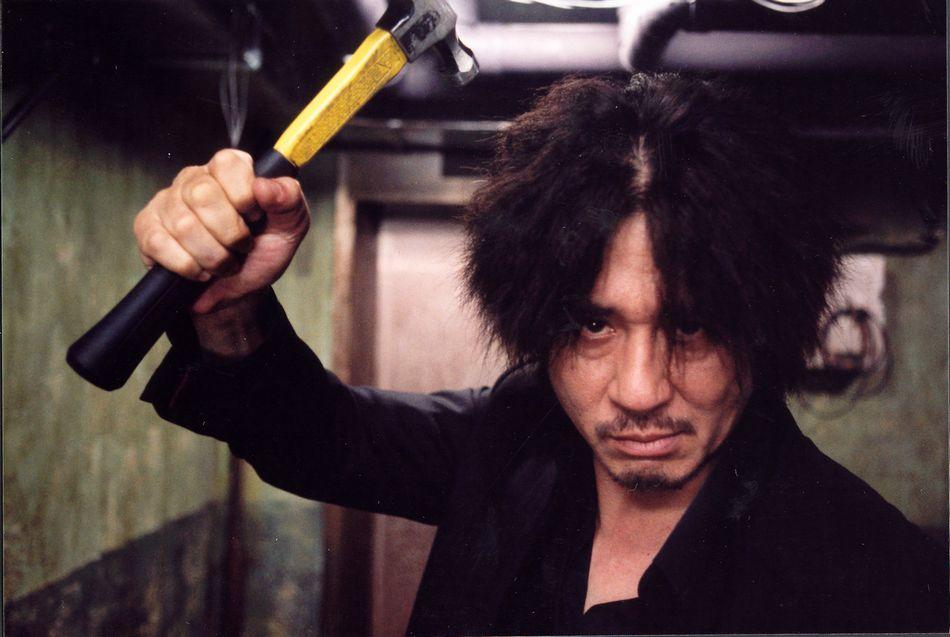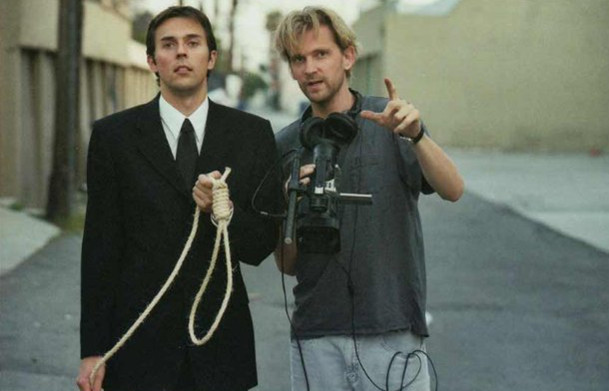14. A Serbian Film (2010, Srdjan Spasojevic)
What makes it depressing: The extreme perversity that we are capable of.
Milos is a retired porn star, now living the life of a father, with a suburban wife and young child. One day, Milos is giving a very lucrative offer, by a more-shady-than-usual porn producer, to do one final film. For inspiration, the producers inject Milos with a drug that makes him violently sexually aggressive. The perversities worsen exponentially as the films winds on, including acts such as Milos chopping a woman’s head off while having sex with her, and other acts for which the simple words do not come close to describing their horror.
If you’ve seen the film, then you know just how abhorrent things become, and if you’re human those images and acts portrayed will never leave you. But this film is much more that pure violence and ‘torture-porn.’ Milos is a good man, a good father. His only flaw is his questionable former career. He takes the job wanting only to provide for his family. Perhaps only in the darkest corner of his imagina-tion does he imagine this job would in fact destroy his family, resulting in their inevitable suicides.
Much like the case of Oh Dae-Su, a common, inherently normal desire, to provide for you and yours, leads to what after-the-fact seems an inescapable end, due to the encompassing darkness—the envy, rage and violence—that lurks within us all.
13. Salo, or the 120 Days of Sodom (1975, Pier Paolo Pasolini)
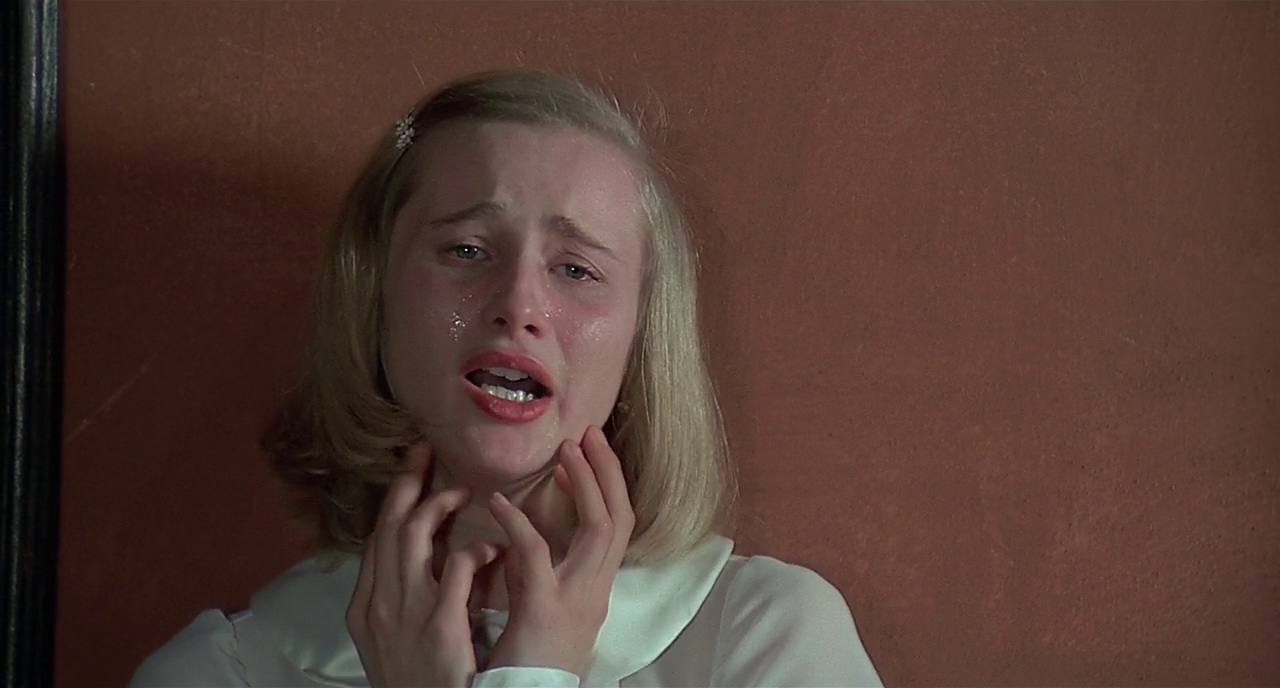
What makes it depressing: The pure decadence of humanity.
The film is based on the infamous novel of the Marquis de Sade, from whose name the term ‘sadist’ arises. Considering this film, that etymological bit of trivia should be obvious. The basic plot is that a wealthy group of Italian fascists keep captive a group of teenagers and subject them to various atrocities, such as rape, forced coprophagia, and torture. Again, it’s the presentation, not the mere content, which makes this film so devastating.
The film stands as a glaring, if unsubtle, rebuke of the elite class, and the decadence of fascism. These fascists have the money and influence to live life however they wish. However, they decide to use their economic status to life out their most base and degrading fantasies upon the most poor and vulnerable. They play songs and tell cheerful stories about being sodomized by their fathers at age nine.
The fact that these men and women committing these atrocities are the most wealthy and distinguished members of their society, subtly (and brilliantly, on Pasolini’s part) communicates that to be where they are, celebrating in their appalling excesses, is the goal of society; that to acquire wealth and influence is commensurate to acquiring the desire for the most ribald and sadistic pleasures known to humanity. Why bother with caviar when the truer delicacy is human feces?
12. Martyrs (2008, Pascal Laugier)
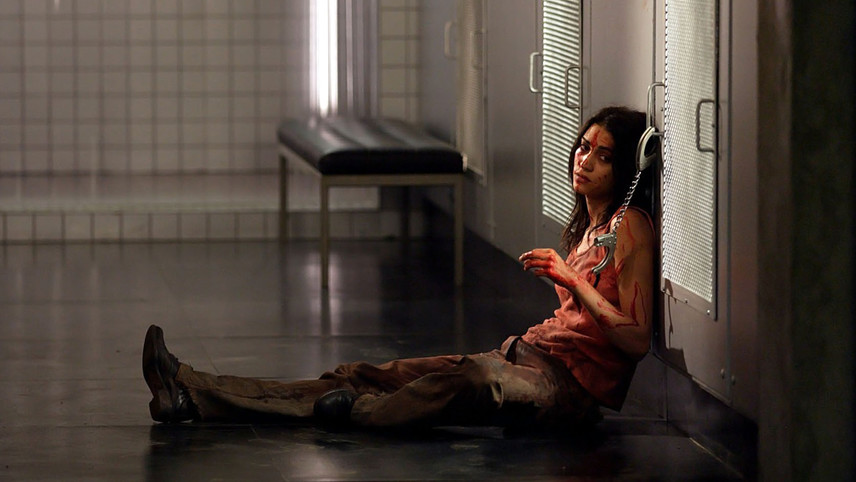
What makes it depressing: The depth to which we will sink in the name of answers.
Martyrs, too, is one of the most violent films on the planet. But like A Serbian Film, the manner of the violence, its nature and motivations, sets it apart from other gore-fests, such as Hostel. The main perpetrator of the extreme violence is a religious cult who tortures young women in a variety of ways, both physical and psychological. Their goal in doing so is to learn about the after-life; they believe their victims can become martyrs, that their souls can enter the after-life while their bodies are still in this life, and that they can relate what they see on the other side.
The film begins with an escapee of the cult returning to murder her torturers, yet another example of revenge leading to destruction. There is the famous proverb, “Before you embark on a journey of revenge, dig two graves.” Her inability to cope with her trauma, to seek proper help for her post-traumatic psychosis, leads to her ill-advised return to the place of her torment, and eventually her death.
The cult members do not see themselves as sadists. They would likely describe themselves as researchers, examining, through what they see as the best methodology, the nature of the after-life. But is that knowledge really worth the extreme suffering you are inflicting? The ends clearly justify the means to these people; human ethics rank so far below the concerns of knowledge that they’re not even on the scale.
Learning is paramount, and to hell with human decency. The even more disturbing and subtle notion, that the cultists could be the true martyrs, sacrificing their resources in search of this answer, is too horrible even to fathom. And when they get that answer, can the human mind really handle it? Or will it destroy us.
11. The Mist (2007, Frank Darabont)
What makes it depressing: The anthropological view of humanity’s darker side.
Based on a Stephen King story, a group of people from a small town in Maine (where else?) are held up inside a grocery store by a strange, heavy mist. There’s clearly something dangerous about it; a man runs into the store bleeding, screaming “There’s something in the mist!” Eventually strange, alien creatures appear out of the mist and attack everyone in the store. But what’s truly terrifying, is the behavior of the people in the store.
Marcia Gay Harden gives a fanatical performance as Mrs. Carmody, a God-fearing Christian who believes this is the end times, that Satan has sent these demons to Earth to prey on sinners. Over the course of the film she convinces nearly the entire store of this truth, and starts to demand sacrifices to appease the beasts and cleanse the wicked. This is portrayed not as an anomaly of an insane extremist, but as something that commonly happens to frightened humans.
“As a species we’re fundamentally insane. Put more than two of us in a room, we pick sides and start dreaming up reasons to kill one another. Why do you think we invented politics and religion?” “—My God, David, we’re a civilized society. —Sure, as long as the machines are working and you can dial 911. But you take those things away, you throw people in the dark, you scare the shit out of them–no more rules.” These are just two quotes from the film that explain these insane behaviors as normal, human interactions in the face of terror.
The ending, however, is the hardest of all. After a handful of people escape, they run into a creature as tall as the sky, with eight gigantic legs, uncountable tentacles, and God knows what other formidable adaptations designed to kill. It is clear that this creature signals the end of the line. David, played wonderfully by Thomas Jane, decides to ease his friends’, and his son’s, suffering by executing them.
Little did he know the military was on its way, with protection and medicine. This unnecessary tragedy, acted out because of an inability to cope with apparent hopelessness, wouldn’t have even been discussed if they had waited only a few minutes. But the impetuousness of our species, our demand for immediate and irrevocable safety, leads us to act dramatically, to ease our pain prematurely rather than fight just a little bit longer.
10. The Girl Next Door (2007, Gregory M. Wilson)
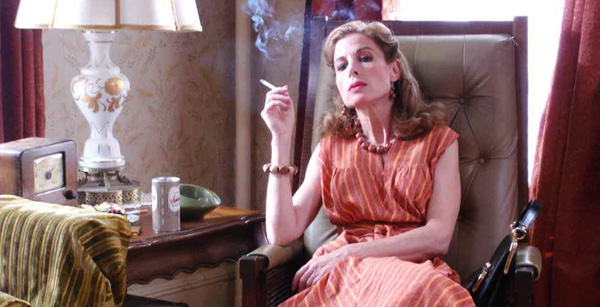
What makes it depressing: The horrors of misogyny.
Meg is a young girl who comes, along with her disabled sister, to live with her aunt Ruth after her parents tragically pass away. Ruth, it would seem, must have been a victim of sexual abuse at some point, because her opinions of women are poor at best. Women, especially young women, in her eyes are little more than whores, vile succubi whose menstruation is a depravity, and whose sexuality is the source of all human shame and needs to never be encouraged or permitted.
These beliefs lead Ruth to treat Meg like she is lower than dirt. She is constantly teased, berated, and abused. Soon verbal attacks fall short, as she is held prisoner in the basement while Ruth’s sons, and several neighborhood boys, take turns sexually assaulting her.
Ruth is clearly among the most terrifying and despicable movie villains in history. The hate- filled words that she uses to torment innocent Meg are released with such apathy, and if young girls are so low that they aren’t even worth passionate hatred. The way she manipulates the young boys of the neighborhood into likewise hating Meg, seeing her as merely a hole, speaks to the influence adults have over children, and when that influence gets perverted, and hate gets taught, is can be monstrous.
Ruth, a woman herself, is nonchalantly helping to create a new generation of deep-seeded misogyny. Finally one of the young boys reports these events (the worst of which being the burning of Meg’s clitoris) to the police. Some faith in humanity is restored, but the battle has been lost, and hate has won.
9. Oldboy (2003, Chan-wook Park)
What makes it depressing: Inevitable, but incredibly human, destruction.
Oh Dae-su is an alcoholic, out being arrested on his daughter’s birthday. After being released by the police, he is abducted and locked away in a room for 15 years. The boredom, isolation, and lonely-ness become his entire life. He has nothing to do but imagine who put him there, imagine what he’ll do to them if he’s ever released. The anger and desire for revenge seethe until not much else is left.
Oh Dae-su is eventually released, and is told that he has 5 days to discover who did this to him and why, or he will be killed. It turns out that when he was in high school, he saw two of his classmates, a brother and sister, having sex. Oh Dae-su, perhaps inadvertently, spread rumors that the sister was pregnant with her brother’s child. The rumors became so persistent that even she believed she was pregnant, and committed suicide.
“Be it a grain of sand, or a rock, in water they sink alike,” is the proverb Woo-jin uses to justify his revenge, of imprisoning Oh Dae-su. Does a small, accidental rumor really deserve 15 years of bondage? But that’s not all; Oh Dae-su has been tricked, through hypnosis, into having an incestuous relationship with the daughter he abandoned.
Oh Dae-su is doomed from the start. For the rational man, it would have been sufficient to be freed. Leave the country; start a new life. But no one is that rational after fifteen years of imprisonment. Revenge and anger consume him. After being given his ultimatum, a side of him, whatever logical capacity he has left, knew that learning the truth would destroy him. But he must know. We seek the truth, we seek explanation, we seek revenge, even though these things we seek will be our ruin. That sense of inevitable destruction is what makes the film so difficult to stomach.
8. A Necessary Death (2008, Daniel Stamm)
What makes it depressing: Suicide, and its effects on the human heart.
Gilbert is a driven documentary filmmaker who places a want ad looking for the subject of his next film. He is looking to film the process of suicide, “from first conception to final act.” Along comes Matt, a man with an inoperable brain tumor, who wishes to end his life before the pain becomes unbearable. Matt befriends Gilbert, and the rest of the film crew, which makes it very difficult, impossible, really, for Gilbert and his crew not to interfere with Matt’s plans.
Matt falls for Valerie, the film’s sound editor, who happens to be Gilbert’s ex. Matt and Val begin dating, and Val convinces him not to go through with the suicide. Something of a love triangle begins between the three, resulting in Val ending up back in Gilbert’s arms, and Matt, devastated, decides to go through with the suicide after all. The camera shows Matt and Gilbert both go into a garage, the idea being that Gilbert will film Matt shooting himself. From outside the garage, we hear two gunshots instead of one.
In opposition to the other films on this list, the depression in this film comes not from apathy, but from reaching out to help. Spending that much time with Matt, the crew couldn’t help but like him, even fall in love with him. Gilbert says at one point “I wish we hadn’t become friends. It would have made the shoot much easier.”
Matt is so sweet and fun-loving (a great performance by actor Matthew Tilley) that we can’t help but want to help him. And from that help, that natural, compassionate compulsion to help, Matt was only made to suffer a bit more in his last weeks, and lead him to take another life with him.
